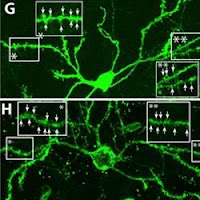BioWorld’s top 10 stories for 2012 included the puzzling outcome of some massive Alzheimer’s trials. Find out how we are more-sure-than-ever of what ought to work, while still unsure of the cure.
Alzheimer’s drug discovery found itself in a puzzling spot in 2012. Late-stage clinical trials in the indication continued to do what they have been doing for years – fail. This year added Eli Lilly and Co.’s candidate solanezumab, and Pfizer Inc. and Johnson & Johnson’s bapineuzumab, which originated with Elan Corp. plc, to the rubble heap.
At the same time, several research studies provided the strongest evidence yet that misprocessing of amyloid precursor protein or APP is indeed a cause of Alzheimer’s disease, not just its consequence. In other words, targeting plaques should work – but it doesn’t.
Ideas for how to translate what is understood about the basic science of Alzheimer’s disease into a working drug include starting treatment earlier, and interfering with the very earliest steps of APP processing in order to prevent the formation of oligomer intermediates as well as the plaques that have been the most common target of experimental therapeutics. But in 2012, that translation once again remained elusive.
Two steps forward are discussed in the following posts containing both videos & articles :
- How Does IVIG Stop Alzheimer’s? Time to Find Out
- Solanezumab, a Top Alzheimer’s Experimental Drug, Launches New Phase 3 Trial
SOURCE: BioWorld












For over a decade the amyloid cascade has been questioned, not because amyloid is unimportant but rather the opposite because it plays a biological role. Amyloid production in all its forms, is a response to brain injury, and required as much as inflammatory mechanisms. While efforts to modulate amyloid may have therapeutic potential, the current focus of amyloid removal has been proven ineffective. Treating to remove amyloid earlier in disease progression or attacking amyloid oligomers is likely to suffer a similar fate. Understanding how the brain maintains normal function as we age will be essential to effective therapeutics that work with rather than against our biology.
We`ve got to KEEP trying!